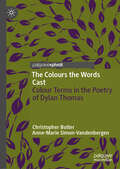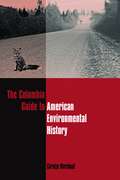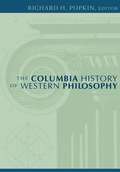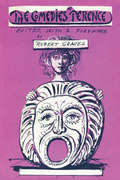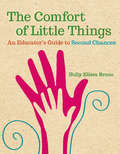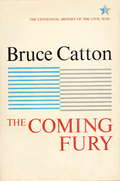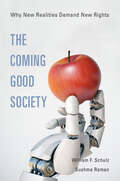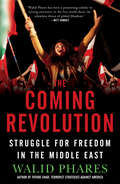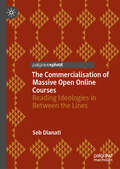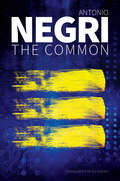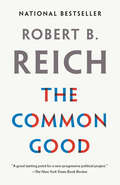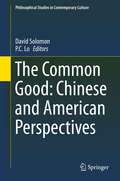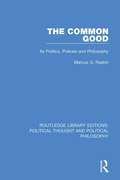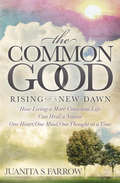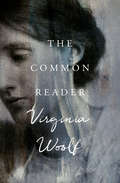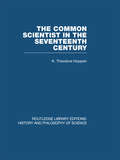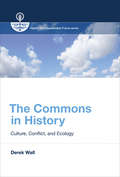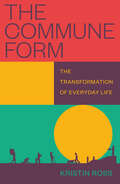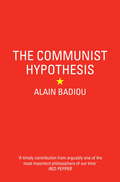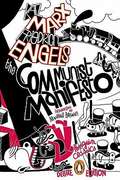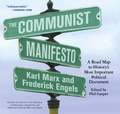- Table View
- List View
The Colours the Words Cast: Colour Terms in the Poetry of Dylan Thomas
by Christopher Butler Anne-Marie Simon-VandenbergenThis book examines the use of colour terms in the poetry of Dylan Thomas, adopting a primarily linguistic and stylistic - rather than literary - approach. Although critical studies of the poetry of Dylan Thomas abound, systematic and detailed linguistic studies of his poems are relatively rare. The authors&’ main aim is to investigate in detail the use of colour terms, and in particular to link this to the associations between colours and their connotative symbolic meanings, which form the basis for what have been called colour metaphors. They also provide a rich database of these associations which will be of use to researchers who may be interested in the use of colour terms in other texts, whether literary or non-literary. This book will be of interest primarily to academics and advanced students in the field of linguistic stylistics.
The Columbia Guide to American Environmental History
by Carolyn MerchantMerchant provides a context-setting overview of American environmental history from the beginning of the millennium; an encyclopedia of important concepts, people, agencies, and laws; a chronology of major events; and an extensive bibliography including films, videos, CD-ROMs, and websites.
The Columbia History of Western Philosophy
by Ed. Popkin Richard H.Richard Popkin has assembled 63 leading scholars to forge a highly approachable chronological account of the development of Western philosophical traditions. From Plato to Wittgenstein and from Aquinas to Heidegger, this volume provides lively, in-depth, and up-to-date historical analysis of all the key figures, schools, and movements of Western philosophy.The Columbia History significantly broadens the scope of Western philosophy to reveal the influence of Middle Eastern and Asian thought, the vital contributions of Jewish and Islamic philosophers, and the role of women within the tradition. Along with a wealth of new scholarship, recently discovered works in 17th- and 18th-century philosophy are considered, such as previously unpublished works by Locke that inspire a new assessment of the evolution of his ideas. Popkin also emphasizes schools and developments that have traditionally been overlooked. Sections on Aristotle and Plato are followed by a detailed presentation on Hellenic philosophy and its influence on the modern developments of materialism and scepticism. A chapter has been dedicated to Jewish and Moslem philosophical development during the Middle Ages, focusing on the critical role of figures such as Averroës and Moses Maimonides in introducing Christian thinkers to classical philosophy. Another chapter considers Renaissance philosophy and its seminal influence on the development of modern humanism and science.Turning to the modern era, contributors consider the importance of the Kaballah to Spinoza, Leibniz, and Newton and the influence of popular philosophers like Moses Mendelssohn upon the work of Kant. This volume gives equal attention to both sides of the current rift in philosophy between continental and analytic schools, charting the development of each right up to the end of the 20th century.Each chapter includes an introductory essay, and Popkin provides notes that draw connections among the separate articles. The rich bibliographic information and the indexes of names and terms make the volume a valuable resource.Combining a broad scope and penetrating analysis with a keen sense of what is relevant for the modern reader, The Columbia History of Western Philosophy will prove an accessible introduction for students and an informative overview for general readers.
The Columbia History of Western Philosophy
by Richard H. PopkinRichard Popkin has assembled sixty-three leading scholars to forge a highly approachable chronological account of the development of Western philosophical traditions. From Plato to Wittgenstein and from Aquinas to Heidegger, this volume provides lively, in-depth, and up-to-date historical analysis of all the key figures, schools, and movements of Western philosophy. Each chapter includes an introductory essay, and Popkin provides notes that draw connections among the separate articles. The rich bibliographic information the and the indexes of names and terms make the volume a valuable resource.
The Comedies of Terence
by Robert GravesTerence achieved in his brief twenty-six years a standard of stylistic perfection and artistic restraint that ranked him, along with Plautus, as the greatest of the Roman comic playwrights. He was, at the very least, a gifted translator and adaptor, having used Greek New Comedies as the basis for all six of his extant plays. How far his own contribution exceeded that of simple translation is difficult to say, but we know that the Latin, undeniably his, was so faultlessly styled that his work served as a textbook for scholars and grammarians for hundreds of years.Terence had a considerable impact on the Revival of Letters; his comedies were studied and were frequently adapted into new works by such men as Steele, Chapman, and, most famously, Moliire. Indeed, had there been no Terence, it is doubtful that the Comedy of Manners could have arisen when it did, and all comic writing for the stage, from Moilire through the Restoration drama to the present day, would be diminished for lack of him. Appropriately, the language of this translation is from the Restoration. Graves has based his version on the one made in 1689 by Laurence Echard; he has corrected inaccuracies, eliminated defects and obscurities, but retained the period tone.Including in this book are the major comedies: The Fair Andrian, The Mother-In-Law, The Self-Tormentor, The Eunuch, The Tricks of Phormio and The Brothers. A close reading of Terence is a fine corrective to any idea that may still be current, about the glory that was Greece and grandeur that was Rome during the Hellenistic period. It is an assurance that in some respects at least, this age is not depraved at all.
The Comfort of Little Things
by Holly Elissa BrunoThe Comfort of Little Things is a thought-provoking book that empowers educators to give themselves and the people in their lives second chances in order for themselves and the children they teach to learn and thrive. This book includes stories from the author and contributors to the author's blog posts.Holly Elissa Bruno is an author, attorney, acclaimed keynote speaker, and host of an online radio program. Her other Redleaf Press books are Managing Legal Risks in Early Childhood Programs (co-published with Teachers College Press) and Learning from the Bumps in the Road.
The Comic Self: Toward Dispossession (Thinking Theory)
by Grant Farred Timothy C. CampbellA provocative and unconventional call to dispossess the self of itself Challenging the contemporary notion of &“self-care&” and the Western mania for &“self-possession,&” The Comic Self deploys philosophical discourse and literary expression to propose an alternate and less toxic model for human aspiration: a comic self. Timothy Campbell and Grant Farred argue that the problem with the &“care of the self,&” from Foucault onward, is that it reinforces identity, strengthening the relation between I and mine. This assertion of self-possession raises a question vital for understanding how we are to live with each other and ourselves: How can you care for something that is truly not yours?The answer lies in the unrepresentable comic self. Campbell and Farred range across philosophy, literature, and contemporary comedy—engaging with Socrates, Burke, Hume, Hegel, Marx, Nietzsche, Heidegger, Derrida, Deleuze, and Levinas; Shakespeare, Cervantes, Woolf, Kafka, and Pasolini; and Stephen Colbert, David Chappelle, and the cast of Saturday Night Live. They uncover spaces where the dispossession of self and, with it, the dismantling of the regime of self-care are possible. Arguing that the comic self always keeps a precarious closeness to the tragic self, while opposing the machinations of capital endemic to the logic of self-possession, they provide a powerful and provocative antidote to the tragic self that so dominates the tenor of our times.
The Coming Fury (The American Civil War Trilogy #1)
by Bruce CattonWinner of the Pulitzer Prize and the National Book Award! A thrilling, page-turning piece of writing that describes the forces conspiring to tear apart the United States--with the disintegrating political processes and rising tempers finally erupting at Bull Run. " . . . a major work by a major writer, a superb recreation of the twelve crucial months that opened the Civil War." --The New York Times
The Coming Good Society: Why New Realities Demand New Rights
by William F. Schulz Sushma Ramen&“Challenge[s] all of us to think deeply about what kind of society we and our children and our children&’s children will want to live in.&” (Margaret L. Huang, former Executive Director, Amnesty International USA) A rights revolution is under way. Today the range of nonhuman entities thought to deserve rights is exploding. Changes in norms and circumstances require the expansion of rights: What new rights, for example, are needed if we understand gender to be nonbinary? Does living in a corrupt state violate our rights? When biotechnology is used to change genetic code, whose rights might be violated? What rights, if any, protect our privacy from the intrusions of sophisticated surveillance techniques? Drawing on their vast experience as human rights advocates, William Schulz and Sushma Raman challenge us to think hard about how rights evolve with changing circumstances, and what rights will look like ten, twenty, or fifty years from now. The Coming Good Society details the many frontiers of rights today and the debates surrounding them. Schulz and Raman equip us with the tools to engage the present and future of rights so that we understand their importance and know where we stand. &“Thoughtful and provocative.&” —Human Rights Quarterly &“[A] trail-blazing map through the new frontiers of rights . . . downright riveting.&” —Gloucester Times &“An accessible primer for anyone who wishes to understand the current limitations in our notions of rights and the future challenges for which we must prepare.&” —Kerry Kennedy, President, Robert F. Kennedy Human Rights &“Schulz and Raman outline brilliantly where [human rights] growth may take rights in the generations to come.&” ―Zeid Ra&’ad al-Hussein, former United Nations High Commissioner for Human Rights
The Coming Revolution
by PharesAfter the 9/11 Commission concluded in 2004 that the U.S. was engaged in a war with terrorists and never realized it, they reasoned that "a failure of imagination" had prevented us from seeing terrorism coming. In effect, Americans were simply unable, or in fact disabled, to fathom that there were people who hated and opposed our democracy with such ferocity. But after billions of dollars and almost a decade fighting a war in the Middle East, will we miss the threat again? With penetrating insight and candor, Walid Phares, Fox News terrorism and Middle East expert and a specialist in global strategies, argues that a fierce race for control of the Middle East is on, and the world's future may depend on the outcome. Yet not a failure of imagination, but rather, of education has left Americans without essential information on the real roots of the rising Jihadi threat. Western democracies display a dangerous misunderstanding of precisely who opposes democracy and why. In fact, the West ignores the wide and disparate forces within the Muslim world--including a brotherhood against democracy that is fighting to bring the region under totalitarian control--and crucially underestimates the determined generation of youth feverishly waging a grassroots revolution toward democracy and human rights. As terror strikes widen from Manhattan to Mumbai and battlefields rage from Afghanistan to Iraq, many tough questions are left unanswered, or even explored: Where are the anti-Jihadists and the democrats in the Muslim world? Does the Middle East really reject democracy? Do the peoples of the region prefer the Taliban, the Muslim Brotherhood, or Hezbollah over liberals and seculars? And is there really no genuine hope that freedom and democracy can prevail over the Islamist caliphate? Phares explores how the free world can indeed win the conflict with the Jihadists, but he says, not by using the tactics, policies, and strategies it has employed so far. He urges policy makers to first identify the threat and define its ideology, or there will be no victory. The Coming Revolution is a vital corrective step in the world's war against terrorism and essential reading that clearly and explosively illustrates the untold story of a struggle to determine if the Middle East can at last reach freedom in this century--or if this planet can prevent the otherwise inevitable outcome that could change our social and political landscape forever. The race is on.
The Commercialisation of Massive Open Online Courses: Reading Ideologies in Between the Lines
by Seb DianatiThis book critically examines the role of Massive Open Online Courses (MOOCs) in higher education, against the backdrop of rapid developments in online learning. Reporting on a method by which one could isolate ideologically charged words from websites, the author underlines the need to pause, question and understand the underlying motives behind MOOCs, and ask fundamental questions about their data use, commercial interests, and ability to provide ‘good’ education. With its step-by-step ideological analysis, the author challenges educators, policymakers, and students alike to reconsider the fabric of online courses and their associated platforms. The book will appeal to scholars of digital education and sociology, as well as scholars from the critical sciences.
The Common
by Antonio NegriThis final volume in Antonio Negri’s new trilogy aims to clarify and develop the ‘common’ as a key concept of radical thought. Here the term is understood in a double sense: on the one hand, as a collective of production and consumption in which the domination of capital has been completely realized; on the other hand, as the cooperation of workers and citizens and their assertion of political power. The maturation of this duality was the sign of the limits of capitalism in our age; the common showed itself as the active force that recomposed production, society and life in a new experience of freedom. Today the promise of freedom seems undermined by the very institutions founded to uphold it, as the charters of western democracy seek to prioritize individualism. Negri advocates instead a free society founded on the premise that the good life is to be collectively ordered – in other words, a society that elevates the common. In his vision, giving political expression to those who work and produce is the only way of overturning totalitarian exploitation and of enabling every citizen to participate in the development of the city. Like its companion volumes, this new collection of essays by Negri will be a valuable resource for anyone interested in radical politics and in the key social and political struggles of our time.
The Common Good
by Robert B. ReichFrom the best-selling author of Saving Capitalism and The Work of Nations, a passionate, clear-eyed manifesto on why we must restore the idea of the common good to the center of our economics and politics.With the warmth and lucidity that have made him one of our most important public voices, Robert B. Reich makes the case for a generous, inclusive understanding of the American project, centering on the moral obligations of citizenship. Rooting his argument in everyday reality and common sense, Reich demonstrates the existence of a common good, and argues that it is this that defines a society or a nation. Societies and nations undergo virtuous cycles that reinforce and build the common good, as well as vicious cycles that undermine it. Over the course of the past five decades, Reich contends, America has been in a slowly accelerating vicious cycle--one that can and must be reversed. But first we need to weigh what really matters, and how we as a country should relate to honor, shame, patriotism, truth, and the meaning of leadership.Powerful, urgent, and utterly vital, this is a heartfelt missive from one of our foremost political thinkers: a fundamental statement about the purpose of society and a cri de coeur to save America's soul.
The Common Good: Chinese and American Perspectives
by David Solomon P. C. LoThis book addresses the Confucian philosophy of common good and deals with the comparative philosophy on eastern and western understandings of common good. The common good is an essentially contested concept in contemporary moral and political discussions. Although the notion of the common good has a slightly antique air, especially in the North Atlantic discussion, it has figured prominently in both the sophisticated theoretical accounts of moral and political theory in recent years and also in the popular arguments brought for particular political policies and for more general orientations toward policy. It has been at home both in the political arsenal of the left and the right and has had special significance in ethical and political debates in modern and modernizing cultures. This text will be of interest to philosophers interested in Chinese philosophy and issues related to individualism and communitarianism, ethicists and political philosophers, comparative philosophers, and those in religious studies working on Chinese religion.
The Common Good: Its Politics, Policies and Philosophy (Routledge Library Editions: Political Thought and Political Philosophy #49)
by Marcus G. RaskinFirst published in 1986. In this thought-provoking book the widely acclaimed thinker and activist, Marcus Raskin, moves beyond the limits and failures of socialism and capitalism to an original theory of social reconstruction for a humane society. Presenting concrete alternatives for education, health, economics and national security he develops a new conception of democracy and the rule of law in relation to our common good. A political and philosophic tool designed for those who search for alternatives in their lives and in the world, The Common Good shows how to organize for social reconstruction, the type of leadership now required, and the importance of restoring progress as a political purpose. Defining politics as broader than the mere manifestation of power, Raskin’s vision helps the left and liberals find their way towards a new public philosophy and program.
The Common Good: Rising of a New Dawn: How Living a More Conscious Life Can Heal a Nation One Heart, One Mind, One Thought at a Time
by Juanita S. FarrowAn inspiring guide about how our daily decisions can turn hate and fear into hope and love. The Common Good: Rising of a New Dawn will forever change how you see your neighbor. On this captivating spiritual journey through America, hear the stories of how ordinary people—people in the trenches devoted to the common good—are making an extraordinary difference in the lives of many. With passion, wit, and wisdom, Juanita Farrow discusses business, politics, and religion, and paints a compelling picture of how the common good is God&’s desire for America, and why it&’s good for America. Juanita Farrow states, &“We live in a great country, but far too often we allow our beliefs and egos to divide us in ways that become a form of paralysis that impacts the entire nation.&” Explore how the people in our lives and the experiences of our journey begin to shape our decisions and our view of the world. The Common Good speaks to people of faith and nonbelievers, and challenges everyone to look within for authentic purpose. It looks at pressing issues for Americans, but also the rising of a new dawn. Building the bridges to transcend differences will require a lot of heart. Creating a movement for the common good will be difficult, but even businesses, for instance, have found social entrepreneurship not only solves problems around the world, but is good for the bottom line. The Common Good describes how living a more conscious life can heal a nation—one heart, one mind, one thought at a time. A message of hope on how to turn fear into love, it can leave you feeling truly empowered—and inspired to make a difference.
The Common Growl: Toward a Poetics of Precarious Community (Commonalities)
by Thomas ClaviezNo longer able to read community in terms colored by a romantic nostalgia for homogeneity, closeness and sameness, or the myth of rational choice, we nevertheless face an imperative to think the common. The prominent scholars assembled here come together to articulate community while thinking seriously about the tropes, myths, narratives, metaphors, conceits, and shared cultural texts on which any such articulation depends. The result is a major contribution to literary theory, postcolonialism, philosophy, political theory, and sociology.
The Common Reader: First Series, Annotated Edition (The Common Reader #1)
by Virginia WoolfA collection of essays from the acclaimed author of Mrs. Dalloway on such subjects as Jane Austen, Geoffrey Chaucer, and her own literary philosophy. A good essay must have this permanent quality about it; it must draw its curtain round us, but it must be a curtain that shuts us in not out. Not written for scholars or critics, these essays are a collection of Virginia Woolf&’s everyday thoughts about literature and the world—and the art of reading for pleasure. That many of them previously appeared in such publications as the Nation, Vogue, and the Yale Review points to their widespread appeal. Still, her brilliant powers of observation and insatiable curiosity shine through . . . &“After all, Mrs. Woolf is no common reader, try as she may to be one. Her powers of coordination and logical inference are altogether too strong and capable. No common reader would kick the over-praised Robinson Crusoe overboard to float in seas of adolescent adoration for Moll Flanders, as she does. It would take an uncommon common reader to discourse as pithily on Elizabethan drama or the furiously literary Duchess of Newcastle. No idle peruser of the printed page would meditate so beautifully on Greek letters. And when we come to those essays, &‘Modern Fiction&’ and &‘How It Strikes a Contemporary,&’ a note that is altogether professional and the result of intensive study and theorizing is to be discerned.&” —The New York Times &“Woolf&’s provocative collection of essays, reviews and flights of literary imagination assesses both the famous and the obscure.&” —The Times (London)
The Common Scientist of the Seventeenth Century: A Study of the Dublin Philosophical Society, 1683-1708 (Routledge Library Editions: History & Philosophy of Science)
by K Theodore HoppenLearned societies, such as the Royal Society of London and the Dublin Philosophical Society were a central feature of the scientific revolution of the seventeenth century. This volume shows that a study of the work and membership of these groups is essential before any realistic assessment can be made of the scientific world at this time. Based on a wide range of manuscript and other sources, this book illuminates, by means of an examination of a particular group of natural philosophers, on problems of general interest to all those concerned with the wider aspects of science in this period.
The Commons in History: Culture, Conflict, and Ecology (History for a Sustainable Future)
by Derek WallAn argument that the commons is neither tragedy nor paradise but can be a way to understand environmental sustainability.The history of the commons—jointly owned land or other resources such as fisheries or forests set aside for public use—provides a useful context for current debates over sustainability and how we can act as “good ancestors.” In this book, Derek Wall considers the commons from antiquity to the present day, as an idea, an ecological space, an economic abstraction, and a management practice. He argues that the commons should be viewed neither as a “tragedy” of mismanagement (as the biologist Garrett Hardin wrote in 1968) nor as a panacea for solving environmental problems. Instead, Walls sees the commons as a particular form of property ownership, arguing that property rights are essential to understanding sustainability. How we use the land and its resources offers insights into how we value the environment.After defining the commons and describing the arguments of Hardin's influential article and Elinor Ostrom's more recent work on the commons, Wall offers historical case studies from the United States, England, India, and Mongolia. He examines the power of cultural norms to maintain the commons; political conflicts over the commons; and how commons have protected, or failed to protect ecosystems. Combining intellectual and material histories with an eye on contemporary debates, Wall offers an applied history that will interest academics, activists, and policy makers.
The Commune Form: The Transformation of Everyday Life
by Kristin RossA leading radical historian looks at the global resurgence of the commune and asks how they can become sites of liberationWhen the state recedes, the commune-form flourishes. This was as true in Paris in 1871 as it is now whenever ordinary people begin to manage their daily lives collectively.Contemporary struggles over land - from the zad at Notre-Dame-des-Landes to Cop City in Atlanta, from the pipeline battles in Canada to Soulèvements de la terre - have reinvented practices of appropriating lived space and time. This transforms dramatically our perception of the recent past.Rural struggles of the 1960s and 70s, like the "Nantes Commune," the Larzac, and Sanrizuka in Japan, appear now as the defining battles of our era. In the defense of threatened territories against all manners of privatization, hoarding, and infrastructures of disaster, new ways of producing and inhabiting are devised that side-step the state and that give rise to unprecedented kinds of solidarity built on pleasurable, fruitful collaborations.These are the crucial elements in the present-day reworking of an archaic form: the commune-form that Marx once called "the political form of social emancipation," and that Kropotkin deemed "the necessary setting for revolution and the means of bringing it about."
The Communist Hypothesis
by Alain Badiou"We know that communism is the right hypothesis. All those who abandon this hypothesis immediately resign themselves to the market economy, to parliamentary democracy--the form of state suited to capitalism--and to the inevitable and 'natural' character of the most monstrous inequalities."--Alain Badiou Alain Badiou's "communist hypothesis," first stated in 2008, cut through the cant and compromises of the past twenty years to reconceptualize the Left. The hypothesis is a fresh demand for universal emancipation and a galvanizing call to arms. Anyone concerned with the future of the planet needs to reckon with the ideas outlined within this book.From the Hardcover edition.
The Communist Manifesto
by Karl Marx Engels Friedrich"A spectre is haunting Europe - the spectre of Communism. " So begins one of history's most important documents, a work of such magnitude that it has forever changed not only the scope of world politics, but indeed the course of human civilization. The Communist Manifesto was written in Friedrich Engels's clear, striking prose and declared the earth-shaking ideas of Karl Marx. Upon publication in 1848, it quickly became the credo of the poor and oppressed who longed for a society "in which the free development of each is the condition for the free development of all. " The Communist Manifesto contains the seeds of Marx's more comprehensive philosophy, which continues to inspire influential economic, political, social, and literary theories. But the Manifesto is most valuable as an historical document, one that led to the greatest political upheaveals of the nineteenth and twentieth centuries and to the establishment of the Communist governments that until recently ruled half the globe. This Bantam Classic edition of The Communist Manifesto includes Marx and Engels's historic 1872 and 1882 prefaces, and Engels's notes and prefaces to the 1883 and 1888 editions. "From the Paperback edition. "
The Communist Manifesto
by Karl Marx Frederick Engels Phil Gasper"What is globalization? Here is one of the best answers. It is the 'constant revolutionizing of production' and the 'endless disturbance of all social conditions.' It is 'everlasting uncertainty.' Everything 'fixed and frozen' is 'swept away,' and 'all that is solid melts into air.' Yes, you have read this before. It is from The Communist Manifesto, by Messrs. Marx and Engels."--The New York TimesHere, at last, is an authoritative introduction to history's most important political document, with the full text of The Communist Manifesto by Marx and Engels.This beautifully organized and presented edition of The Communist Manifesto is fully annotated, with clear historical references and explication, additional related texts, and a glossary that will bring the text to life for students, as well as the general reader.Since it was first written in 1848, the Manifesto has been translated into more languages than any other modern text. It has been banned, censored, burned, and declared "dead." But year after year, the text only grows more influential, remaining required reading in courses on philosophy, politics, economics, and history."Apart from Charles Darwin's Origin of Species," notes the Los Angeles Times, the Manifesto "is arguably the most important work of nonfiction written in the 19th century." The Washington Post calls Marx "an astute critic of capitalism." Writing in The New York Times, Columbia University Professor Steven Marcus describes the Manifesto as a "masterpiece" with "enduring insights into social existence."The New Yorker recently described Karl Marx as "The Next Thinker" for our era. This book will show readers why.Phil Gasper is a professor of philosophy at Notre Dame de Namur University in northern California. He writes extensively on politics and the philosophy of science and is a frequent contributor to CounterPunch.
The Communist Manifesto
by Karl Marx Frederick EngelsThe Communist Manifesto, originally titled Manifesto of the Communist Party (German: Manifest der Kommunistischen Partei) is a short 1848 book written by the German Marxist political theorists Karl Marx and Friedrich Engels. It has since been recognized as one of the world's most influential political manuscripts. Commissioned by the Communist League, it laid out the League's purposes and program. It presents an analytical approach to the class struggle (historical and present) and the problems of capitalism, rather than a prediction of communism's potential future forms. <p><p> The book contains Marx and Engels' Marxist theories about the nature of society and politics, that in their own words, "The history of all hitherto existing society is the history of class struggles." It also briefly features their ideas for how the capitalist society of the time would eventually be replaced by socialism, and then eventually communism.
